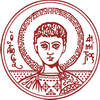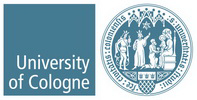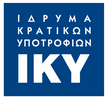Intellectual Outpus 5 - Results: Supporting Refugees on Health and Law Issues

The material regarding IO5 activity on legal issues and issues of social security consists of
1. Useful Definitions on Asylum Law;
2. The Refugee Status Determination;
3. Asylum Procedures;
4.Reception Conditions;
5. Administrative Detention of Asylum seekers.
6. Access to Health;
7. Pension for Uninsured Adults;
8. Recognized Refugee Rights;
9. Benefits and Allowances for Refugees.
Moreover, the bibliography and links to useful educational material, such as relevant case-law and legislative texts are annexed at the end of the material.
For the IO5 part concerned with Health, on the trainer’s side (professionals) a First Aid course was developed with common emergency occurrences (how to approach, evaluate and help accident victims, how to deal with : chocking, bleeding, heart attack, stroke, fractures, soft tissue lesions, drowning, burns, poisonings, electrocution) alongside with emphasis on CPR. Expanding further, sections were included on sexually transmitted disease prevention as well as basic hygiene rules, and national vaccination program. This was designed and delivered in as a concise presentation accompanied by referrals to videos documenting the techniques described. Relevant material in the form of extensive and descriptive notes (“booklet” format) was also created and providing, expanding on procedures described in the presentation. Throughout the creation of this material we kept in mind to use simple language, describe the techniques in a “to the point” manner and provide descriptive illustrations, aiming to yield a practical, easily applicable “manual” useful even to the layman. Finally, we organized a presentation on the structure and function of the Greek Health System utilizing the relevant Official Government Gazette issues. This includes information on the organization and stratification of the Greek Health System, how to navigate through it when medical attention is required (where to go, what are the standard procedures for admission etc.) as well as information on the procurement of medical supplies and drugs through pharmacies.
On the refugee/immigrant’s side, we provided the same material described above. Furthermore we procured pamphlets for distribution, documenting ways of personal protection in emergency situations. Such situations include common occurrences for camp residents and/or travelling parties such as fires, Irish crossings, earthquakes and floods.). Taking a step further, material was amassed concerning basic personal hygiene, use of toilet facilities, disease prevention measures for people living in close quarters and an effort was made to bridge probable intercultural differences on medical matters in order to achieve maximum impact of the information provided.
Attachments:







